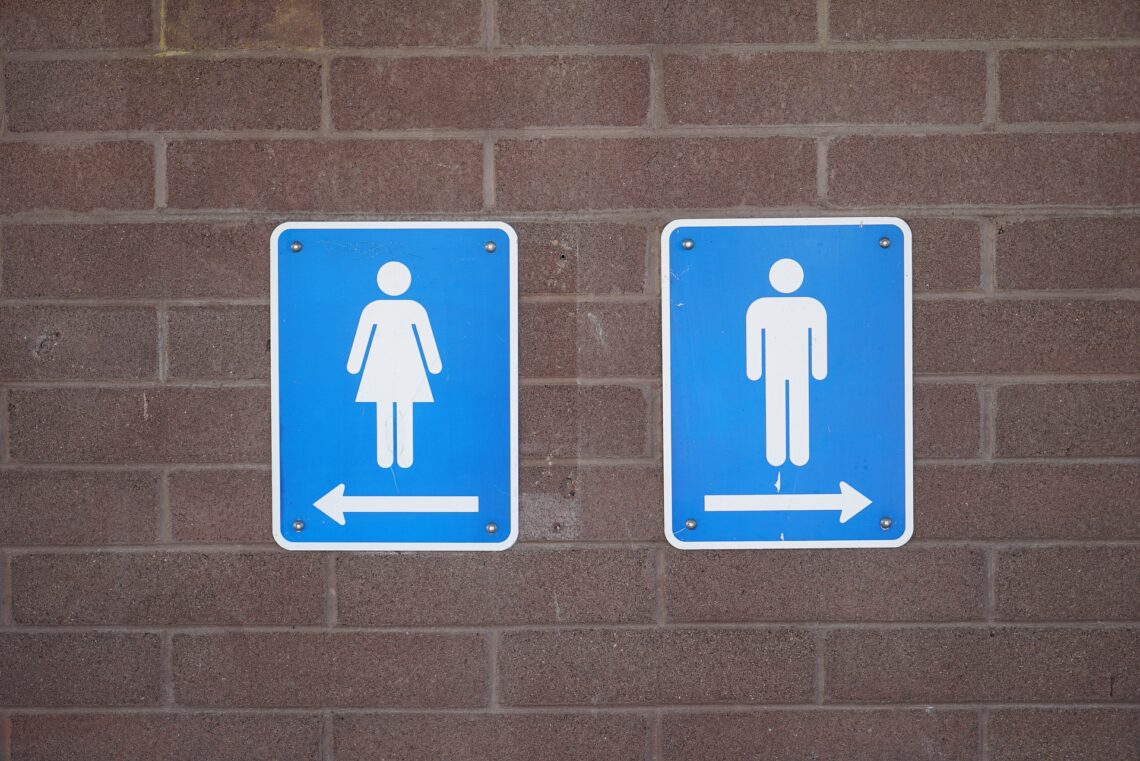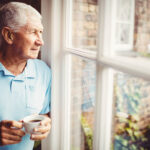What is incontinence?
Incontinence is the term used to describe any accidental or involuntary loss of urine or faeces. The degree to which a person is incontinent can vary from a ‘small leak’ to complete loss of control over the bladder and bowels.
Incontinence becomes much more common as we age. More than 2.5 million people over 60 in the UK suffer from some degree of incontinence. Research has shown that people with dementia are three times more likely to have urinary incontinence, and four times more likely to have faecal incontinence than people without dementia. Incontinence in people with dementia can be very distressing, and a large burden to those providing care. This article will explore some of the causes of incontinence, how to keep the bladder and bowels healthy, managing accidents and maintaining personal hygiene and dignity.
Causes of incontinence
The causes of incontinence vary between person to person, but can include:
- Urinary tract infections
- Reduced mobility meaning that the person is not able to reach the toilet in time
- Medications, such as diuretics, which are medications that causes increased passing of urine. Find out more about managing medication for someone with dementia
- Weakened muscles around the bladder and bowel
- Prostate problems in men
- Reduction in bladder control in women who have had children
People with dementia may also encounter difficulties such as forgetting where the toilet is, and some types of dementia can affect the area of the brain which controls the bladder.
Healthy bladder and bowels
Some causes of incontinence are treatable, for example a urinary tract infection or constipation, so it is important to get any incontinence checked out by a GP.
There are some things that can be done to help keep the bladder and bowels healthy, and reduce the impact that incontinence can have.
- Drinking plenty of water helps to reduce the risk of becoming constipated and also reduces the risk of developing a urinary tract infection. Try to drink between 6 – 8 glasses of water per day.
- Eating a balanced diet with at least 5 portions of fruit or vegetables per day, and incorporating at least 30g of fibre per day. Good sources of fibre include wholewheat cereals, wholewheat bread, pulses (such as lentils and beans), nuts and seeds, and potatoes with the skin on.
Dealing with incontinence accidents
Having an accident can be very embarrassing, therefore trying to reduce the risk of having an accident is a good first step. For people who sometimes forget where the toilet is, having signs up around the home can be useful. These should include words and pictures. Try and ensure that routes to the toilet are clear of clutter and furniture so that the person can get to the toilet easily.
Unfortunately, accidents are sometimes inevitable, so being prepared for them can help to make it less embarrassing should it happen. Try keeping a spare pair of underwear and trousers in your bag or in the car, so that you have access to clean clothing. It may also be useful to keep a small pack of wet wipes with you to help freshen up. While it can be frustrating, try to understand that it’s not their fault. Find out more about techniques for talking to people with dementia.
It might be worth considering a small incontinence pad that is worn in the underwear, which is easy to change and can help to freshen up, without the need for a change of underwear and clothing. Some people don’t like the idea of wearing a pad, and this is totally personal preference, so the important thing is to find what works for you. Remember, if you do choose to use a pad, avoid using talcum powder in the genital area as this can affect the pad’s absorbency.
Skincare for people with incontinence
Good skincare is very important for people with incontinence as urine and faeces can damage the skin and cause redness and irritation. This is because urine and faces is more acidic than our skin. The areas that are most commonly affected are around the bottom, genitals and inner thighs. Warm, damp skin provides a good place for bacteria to grow, and so can cause fungal and urinary tract infections.
Here are some tips for maintaining healthy skin:
- Keep skin clean and dry. This means if you or your loved one has an accident, it is important to clean and dry the skin as soon as possible to avoid irritation. Try to pat the skin dry rather than rubbing, as rubbing can agitate irritated skin.
- Do not use strong disinfectants or perfumed moisturisers in this area, as these can add to skin irritation. If using a pad, change it frequently, so that a damp pad is not in contact with the skin for long periods. Many pads now have a guideline on them which shows up when the pad is near to its full capacity and needs to be changed.
Continence aids
There are many continence aids available, and it may be worth trying a couple to see what suits you best. They are available to buy at large pharmacies or online. Here are some examples of products that are available:
- Urinal bottles. These are bottles that can be urinated into if you or your loved one cannot get to the toilet in time, or if mobility is restricted. These come in different shapes to fit both male and female bodies.
- Urinal sheaths. These are single use, silicone tubes which fit over a man’s penis and are connected to a drainage bag. They look similar to a condom, and work in a similar way to a catheter, but are not invasive. If they are fitted properly, urine does not come into contact with the skin.
- Commodes. This is similar to a wheelchair, with a hole in the seat and a bucket or container underneath. Commodes are usually on wheels, which makes them easy to move from room to room. This may be useful if you or your loved one finds that you have to go to the toilet frequently or urgently, and find it difficult to get to the toilet in time.
- Incontinence sheets. These are small square sheets, usually about 30cm by 30cm, which have a plastic backing, meaning if you do have an accident in bed, it saves your bed sheets from becoming soiled, and makes cleaning up easier.
It may be worth speaking to your GP or nurse about incontinence aids, as many are available on prescription in some areas.
Incontinence at night time
Many older people wake during the night to urinate. There are a few reasons for this. The first is that as we age, the bladder becomes less elastic and can hold less urine, meaning we need to go to the toilet more often. Another reason is that as we age, the body starts to make more urine during the night than during the day. If you are finding that you are waking frequently during the night, you might want to consider one of the incontinence aids mentioned above.
If these are not for you, then some other tips you care try are:
- Don’t drink anything for at least two hours before bed. This gives fluids time to pass through the body and for you to pass urine before bed. Make sure that you drink plenty during the day to stay hydrated. Learn more about managing diet and fluid intake for someone with dementia.
- Leave a nightlight on. This means if you your loved one need to get out of bed quickly, the route is clear and this reduces the risk of falling on the way.
Although incontinence is a very common problem in people with dementia, it is important that if it is a new thing, then get it checked out by the GP. It is also very important to remember that if you ever see blood in your own, or a loved one’s urine, see the GP urgently, even if you don’t see it every time.



